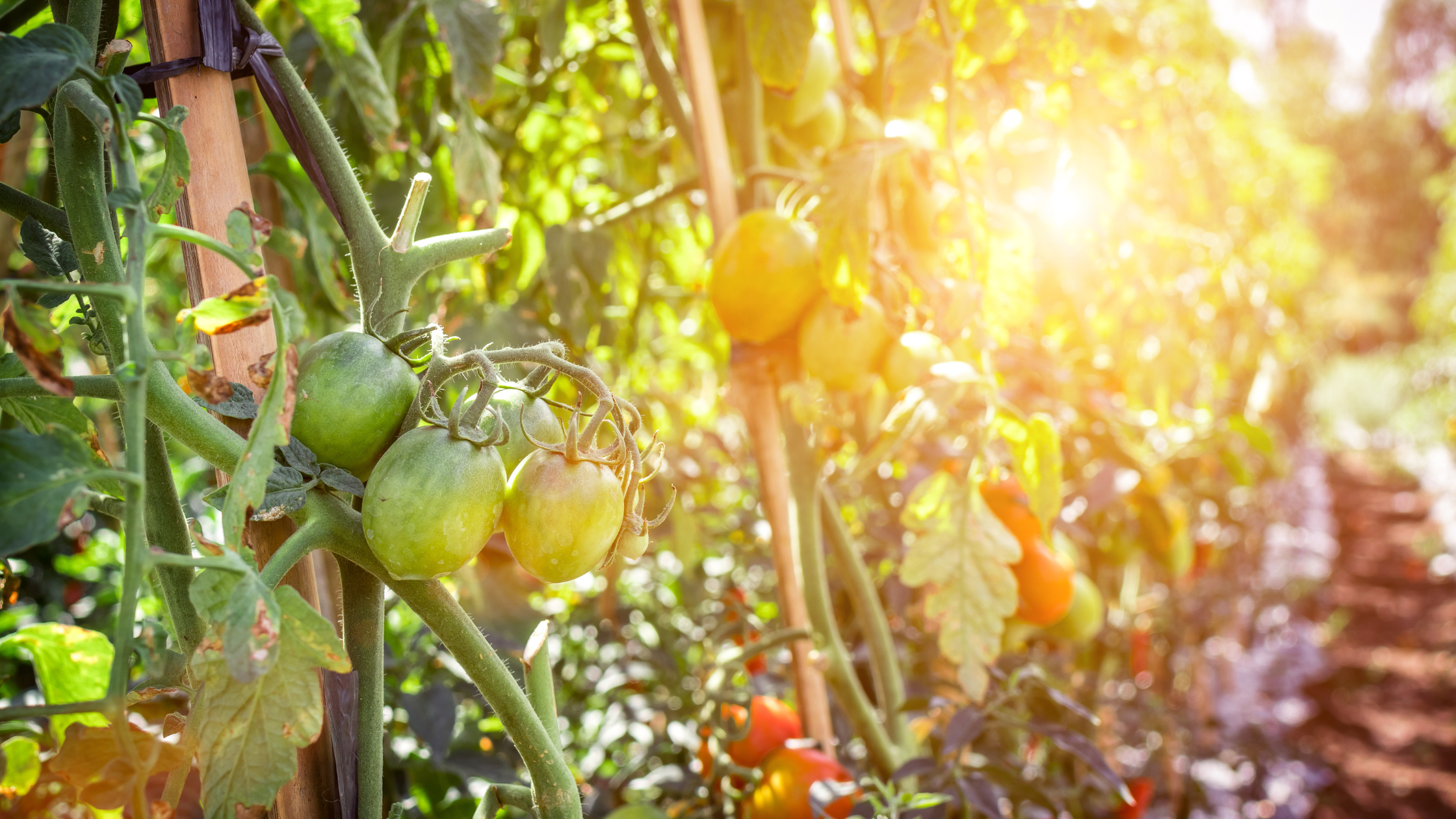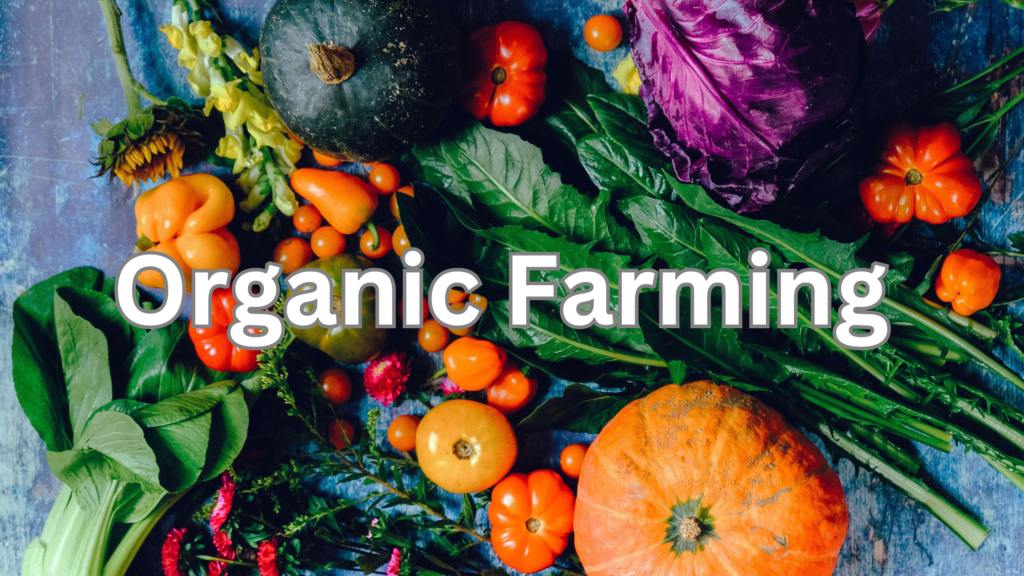
The Environmental Impact of Organic Farming – A Sustainable Solution
Benefits of Organic farming
Introduction: Unveiling the Green Practices of Organic Farming
Organic farming stands as an inspiration of sustainable agriculture, devoid of harmful chemicals that can harm the environment. The essence lies in nurturing the land naturally, promoting soil health and biodiversity. By avoiding synthetic pesticides and fertilizers, organic farms contribute to a healthier ecosystem.
In contrast to conventional methods, the benefits of organic farming extend beyond the produce. It champions water conservation, lessens air pollution, and fosters biodiversity. This eco-friendly approach not only safeguards the environment but also promotes long-term soil fertility, ensuring a sustainable and resilient agricultural system.
In essence, opting for organic produce aligns with supporting agriculture that prioritizes the planet’s well-being. By understanding the environmental impact of organic farming, consumers can make informed choices, contributing to a greener and healthier future. Choosing organic isn’t just about what’s on the plate; it’s a conscious decision to nurture the Earth for generations to come.
Environmental Benefits of Organic Farming
The fertile lands of South India are witnessing a shift towards a healthier future with the rise of organic farming. This eco-friendly practice goes beyond just growing crops; it nourishes the very foundation of life: the soil. Unlike conventional methods, the benefits of organic farming involve avoiding harmful chemicals and opting for natural solutions like compost and crop rotation. This not only enriches the soil with essential nutrients but also fosters a thriving ecosystem.
Healthy soil, teeming with beneficial bacteria and earthworms, becomes a haven for diverse life forms. This biodiversity not only promotes natural pest control but also creates a robust ecosystem. With less reliance on harsh chemicals, organic farming contributes to cleaner air and water, impacting not just the land but also the health of communities.
So, when you choose organic, you’re not just making a personal choice, you’re contributing to a healthier planet. You’re supporting sustainable practices that nurture the soil, promote biodiversity, and pave the way for a thriving future for generations to come. It’s a win-win for the environment and its people.

Water Conservation in Organic Agriculture
In the vast expanse of agriculture, the benefits of organic farming extend beyond bountiful harvests. Unlike conventional methods that often rely heavily on irrigation, organic farming utilizes water-efficient techniques like mulching and cover cropping. By retaining moisture in the soil, these practices reduce the need for frequent watering, ensuring every drop is used effectively.
The environmental impact of organic farming on water quality is profound. By avoiding synthetic chemicals and embracing natural fertilizers, organic farms play a crucial role in reducing water pollution. These harmful chemicals can seep into the soil and eventually contaminate water sources, posing a threat to human health and the environment.
By choosing organic, you’re not just making a sustainable choice for the land, you’re also safeguarding the water resources vital for future generations. By supporting organic farming, you’re helping to conserve water, protect our environment, and ensure a brighter future for all.
Impact on Air Quality and Climate Change
In the spacious canvas of agriculture, the benefits of organic farming paint a portrait of environmental harmony. One notable brushstroke is the contribution to cleaner air and the mitigation of climate change. Through its eco-friendly practices, organic farming becomes a guiding light of hope in a world grappling with environmental challenges.
The environmental impact of organic farming echoes through reduced greenhouse gas emissions. Unlike conventional farming, which relies heavily on synthetic fertilizers and pesticides, organic systems embrace natural alternatives. This shift not only minimizes the carbon footprint but also cultivates soil health, acting as a dual-force for a planet striving for sustainable solutions.
As we consider the role of agriculture in climate change, embracing the principles of organic farming emerges as a practical step forward. It goes beyond nurturing crops; it’s about sowing the seeds of a strong planet where cleaner air and a stable climate become the fruits of eco-friendly practices.
Biodiversity Conservation through Organic Practices
In the tapestry of agriculture, the benefits of organic farming weave a story of association with nature. Unlike conventional methods, organic practices foster diverse ecosystems, providing a sanctuary for wildlife. This harmonious coexistence extends beyond crops to embrace the intricate web of life in the fields.
The environmental impact of organic farming extends a welcoming hand to pollinators and beneficial insects. Free from the shackles of synthetic pesticides, organic farms become buzzing hubs of life. Bees, butterflies, and other essential pollinators find refuge, creating a balanced dance that not only ensures crop yields but also safeguards the delicate interplay of nature.
In the realm of agriculture, where balance is key, choosing eco-friendly practices becomes a pledge to nurture the planet. Organic farming stands as a testament to this commitment, where every seed sown echoes in the thriving biodiversity and flourishing wildlife, painting a fertile picture of sustainable coexistence.
Conclusion: Advocating for Sustainable Choices
Choosing organic produce is a powerful way to contribute to a greener future, both for the environment and your own well-being. Discover the abundant benefits of organic farming that transcend the dinner plate.
- Reduced pollution: Organic farming eliminates the use of harmful synthetic fertilizers and pesticides, minimizing air and water pollution. This not only protects our precious water resources but also creates a healthier environment for everyone.
- Enhanced biodiversity: By fostering healthy soil and avoiding harmful chemicals, organic farming encourages a thriving ecosystem teeming with beneficial insects, birds, and other wildlife. This diversity strengthens the natural balance and promotes a more resilient environment.
- Combating climate change: Eco-friendly practices like composting and cover cropping help to store carbon in the soil, mitigating the effects of climate change. By choosing organic, you’re contributing to a healthier planet for future generations.
By opting for organic produce, you’re not just making a healthy decision for yourself, you’re taking a stand for a greener and more sustainable future for the planet.
Fancy learning more about organic farming? Check out your local Uyir Organic Farmers Market or head online to https://uyironline.in/ or https://uyirorganic.farm